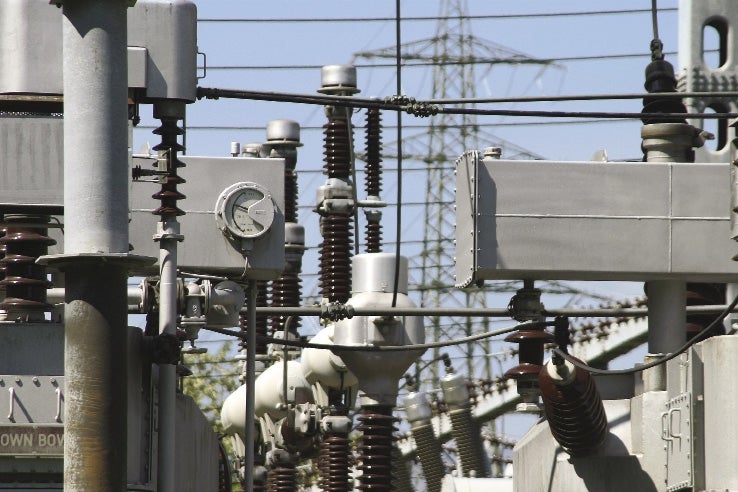State utility regulators have ordered a broad investigation into the management of National Grid in a rare move born of concerns that one of the state’s largest electricity providers failed to communicate about the potential for severe delays in solar power installations.
The Department of Public Utilities is also questioning National Grid’s management of its electric vehicles program and whether the company’s cybersecurity plan adequately takes into account benefits for customers who are paying for the technology upgrades.
The independent management audit was ordered as part of a 586-page decision issued late last month in which DPU approved a $90.4 million increase in National Grid’s base distribution rates.
In blunt terms, regulators said the rare, but not unprecedented audit was necessary to examine “potential management problems through to the highest levels of the organization.”
The DPU released its decision on National Grid’s request for a rate increase on Sept. 30.
The approved increase was $41.8 million less than what National Grid requested, and is the first adjustment to the utility’s rates since 2016. The department also approved an increase in the monthly residential fee to $7 from $5.50.
Regulators, however, said they were “troubled” that the company had not informed DPU of the potential for a major study of transmission infrastructure in central and western Massachusetts.
The decision said the “cluster study” has the potential to delay the interconnection of up to 900 megawatts of solar power, which is more than half of the state’s target for solar development under the renewable energy program known as SMART.
“The Company’s failure to meaningfully engage with the Department and stakeholders prior to the commencement of the Cluster Study raises serious concerns about management decisions made at the Company, whether these decisions serve the public interest, and about the efficiency and timeliness of communications between personnel performing the work and management,” the DPU decision stated.
The cluster study could take from one to two years to complete, according to DPU, and necessary system upgrades identified as a result of the study could take another two to five years.
National Grid declined to respond to the specific concerns outlined in the DPU decision, but said the independent review would be an opportunity for the company to “reinforce our commitment to continuous improvement as we strive to provide our customers with the level of service they expect and deserve.”
“As we always do with our internal management reviews, we will seek to emerge from the process prepared to embed any critical learnings into our way of doing business,” National Grid spokeswoman Danielle Williamson said.
Solar developers fault National Grid for not being more proactive in relaying information about applications for solar connections to grid-operator ISO New England and the DPU as they were received and not being more upfront with developers about the possible need for a transmission study.
“I have not seen this before. It was surprise,” said Jeremy McDiarmid, vice president of policy and government affairs for the Northeast Clean Energy Council, about the independent management audit.
McDiarmid said the cluster study has created real obstacles for solar power developers, and has required the DPU to work closely with utilities, developers and ISO New England to find “creative ways” to deploy projects.
“It does not necessarily freeze solar development but it does create very strong headwinds and presents a challenge to the state to meet its clean energy goals,” McDiarmid said.
The DPU also said it found “merit” to Attorney General Maura Healey’s concerns that National Grid’s investment in information technology and cybersecurity was “reactive, uncoordinated, and has not been vetted to determine benefits Massachusetts ratepayers receive for the costs allocated to them.”
Finally, the agency said certain staffing decisions and “continuing reorganization” could cause disruptions and undermine efficiency.
The agency took particular issue with the fact that it seems National Grid had two separate teams working on the development of Phase I and Phase II of its electrical vehicle program.
“The Department expects a certain level of continuity in utility management and staffing, and particularly in programs like EV that tend to have a steep learning curve where effective program performance can benefit from gained experience,” the decision said.
Overall, the 10-month review of National Grid’s rate case resulted in the first increase in base distribution rates in three years, and the approval of several proposals to speed the development of electric vehicle infrastructure and offer residential customers an incentive to charge their vehicles during off-peak hours.
“The final result of this order will ensure Massachusetts continues to lead the way by investing and providing clean and reliable energy solutions to the ratepayer,” said DPU Chair Matthew Nelson in a statement.
“The Department of Public Utilities is conscious of what every dollar means to customers, and this decision will ensure customers experience minimal modest bill impacts while ensuring that the electric grid maintains safe and provides reliable service,” Nelson said.
The department also approved plans for National Grid to help governments incorporate electric vehicles into their fleets, and to study the potential economic, environmental and customer benefits of co-locating electric vehicle fast-charging stations with energy storage and solar facilities.
The final scope of the management audit will be determined after stakeholders have a chance to weigh in, according to state officials, and the cost will be covered by National Grid shareholders.

